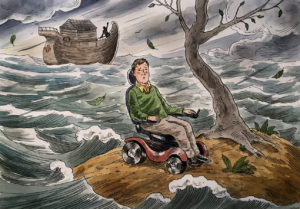Community Health & Resiliency
In order to reach Carbon Zero by 2045 and build resilience to current and future climate change threats to communities, the Mayors’ Commission on Climate Change adopted the following three strategies for the Community Health & Resiliency sector as priority areas of action.
 Urban Greening & Forestry
Urban Greening & Forestry
Expand green infrastructure to ensure that all neighborhoods have access to green space within a quarter mile by 2030 and a baseline canopy of 25% by 2030 and 35% by 2045, starting with historically marginalized communities2 and tree-deficient neighborhoods.
 Sustainable Food Systems
Sustainable Food Systems
Increase food security and access to healthy, affordable food for all communities while supporting a regenerative food system by sourcing 25% of food locally within a 200-mile radius by 2030 and 40% by 2045, and by reducing 50% of aggregate food waste by 2025 and 75% by 2030.
 Community Climate Resilience
Community Climate Resilience
Identify climate vulnerabilities and adaptation strategies as part of the Climate Action Plan or General Plan updates by 2022. Develop and implement preparedness measures, with a priority focus initially on increasing the resilience of communities most vulnerable to climate change impacts by investing in existing community assets and networks to increase community adaptive capacity.

